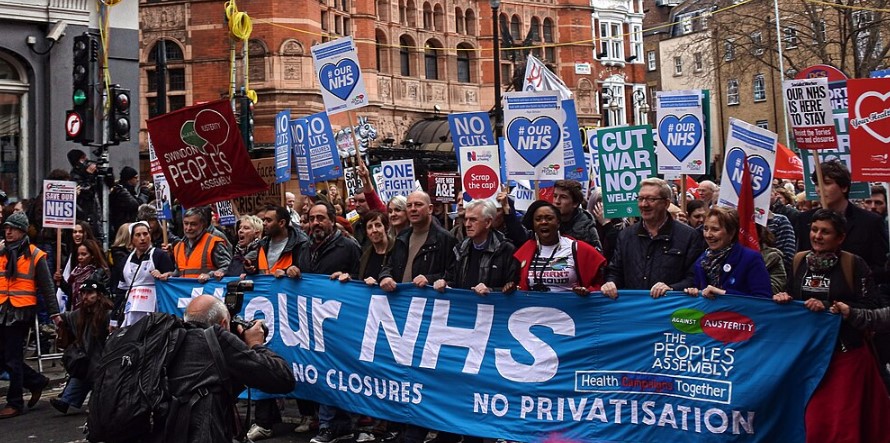By Andy Ford, Unite Health National Committee member
Over a million NHS workers should have had their annual pay award from April 1. Instead of which they have had nothing, only silence, and not even a date to expect something. And this is while staff are leaving in droves and agencies are practically printing money for themselves by supplying skilled staff to NHS Trusts.
Our pay in the NHS it is not negotiated, it is ‘awarded’ by the ‘independent’ Pay Review Body (PRB), which is a group composed of hand-picked university professors. Even an HR textbook points out that they are “chosen by the government, who set their terms of reference, who give evidence to them, and choose which, if any, of their recommendations to accept.” So – not very ‘independent’ then.
The PRB has not even produced its report yet. If it follows the usual pattern they will put something out at the end of May, or early June (no rush…), just as parliament retires for the long summer recess.
As a result of the government using the PRB as a sort of human shield in the 2023 pay row – “an independent Pay Review Board has decided this is a fair offer” intoned the government ministers – Unite and GMB have now voted to just not bother with the PRB. The real negotiation is with the Treasury.
What we do know is that Trust Finance Directors have been told to budget for 3%! It is not sufficient when food inflation is running at 9% and MPs are getting 5.2% from April. Holding down pay in the NHS is creating so many problems for our members, other NHS workers, and the patients, who pay the price in waiting lists, ambulance delays and A&E problems. There are 45,000 nurse vacancies across the NHS, and a BBC investigation revealed that such is the shortage of nurses that an agency was charging the NHS £1,600 for one nurse on a Bank Holiday shift. The nurse got £800.
Supermarkets offer better pay than skilled health staff
More than 170,000 staff left the NHS last year, which is not surprising when we look at the wider economy. Tesco have just set their basic level pay at £12.02 an hour, and Lidl and Aldi are one pound an hour more than that (£13.85). NHS Band 3, which is where people have developed clinical skills like venepuncture or sample preparation, is paid £12.45 per hour at the top of scale. This obviously affects NHS turnover and recruitment.
The Unite claim is for ‘pay restoration’, which means a route back to the value of NHS pay in 2010, an extra bank holiday to be equal with Scotland, and shift pay during sickness (as we had up to 2013). But it looks like achieving it would take a campaign of industrial action because the real decision-maker is the government, not the trusts, and not the PRB, and the government do not listen to logic on its own.
There is talk of a separate deal for nurses since that is seen as the most visible problem, but Unite opposes this, as all NHS workers are part of one team. For instance, 80% of hospital treatment depends on lab tests performed by biomedical scientists, another shortage occupation.
The shortage of nurses is not only due to low pay – forcing student nurses to pay £9,000 a year to train reduces the numbers entering the profession, because it means massive debts to pay off. Many nurses face terrible conditions, with long hours, no breaks and stress. A lot of hospital trusts think they are still in the 1980s.
The lack of flexible working for childcare also drives young women out of the workforce; as well as those caring for parents, driving older women out. Many trusts have been allowed to demote nurses from band 6 to band 5, to save money. The result is no surprise: a massive shortage of nurses.
The government also want to make a special pay spine for IT because, again, the NHS is not paying competitive wages, and so ends up employing contractors on £1,000 a day. But are we not all one team? And there is already provision to pay supplements for scarce skills.
Unite stands for pay restoration for all NHS workers. To get back to 2010 spending power everyone in the NHS deserves 20%. We should have had our annual pay rise this week, the same time MPs are getting theirs.
[picture top from Wikimedia Commons, here]



